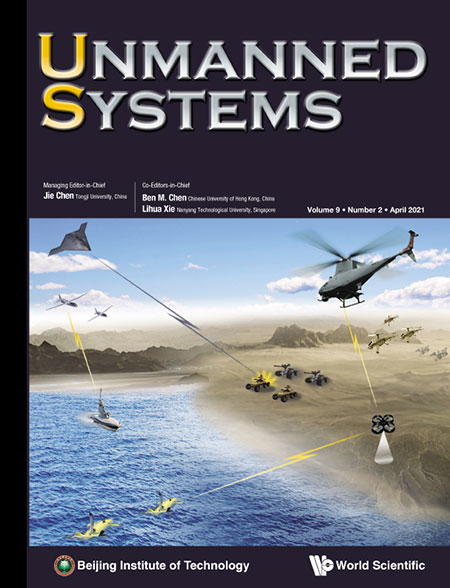Learning Hybrid Policies for MPC with Application to Drone Flight in Unknown Dynamic Environments
IF 3
3区 计算机科学
Q2 AUTOMATION & CONTROL SYSTEMS
引用次数: 0
Abstract
In recent years, drones have found increased applications in a wide array of real-world tasks. Model predictive control (MPC) has emerged as a practical method for drone flight control, owing to its robustness against modeling errors/uncertainties and external disturbances. However, MPC's sensitivity to manually tuned parameters can lead to rapid performance degradation when faced with unknown environmental dynamics. This paper addresses the challenge of controlling a drone as it traverses a swinging gate characterized by unknown dynamics. This paper introduces a parameterized MPC approach named hyMPC that leverages high-level decision variables to adapt to uncertain environmental conditions. To derive these decision variables, a novel policy search framework aimed at training a high-level Gaussian policy is presented. Subsequently, we harness the power of neural network policies, trained on data gathered through the repeated execution of the Gaussian policy, to provide real-time decision variables. The effectiveness of hyMPC is validated through numerical simulations, achieving a 100\% success rate in 20 drone flight tests traversing a swinging gate, demonstrating its capability to achieve safe and precise flight with limited prior knowledge of environmental dynamics.学习 MPC 的混合策略并将其应用于未知动态环境中的无人机飞行
近年来,无人机在各种实际任务中的应用越来越多。模型预测控制(MPC)因其对模型误差/不确定性和外部干扰的鲁棒性,已成为无人机飞行控制的实用方法。然而,当面临未知的环境动态时,MPC 对手动调整参数的敏感性会导致性能迅速下降。本文探讨了如何在无人机穿越具有未知动态特性的摆动门时对其进行控制这一难题。本文介绍了一种名为 hyMPC 的参数化 MPC 方法,该方法利用高级决策变量来适应不确定的环境条件。为了得出这些决策变量,本文提出了一个新颖的策略搜索框架,旨在训练高级高斯策略。随后,我们利用神经网络策略的力量,通过重复执行高斯策略所收集的数据进行训练,从而提供实时决策变量。我们通过数值模拟验证了 hyMPC 的有效性,在 20 次无人机穿越摆动门的飞行测试中,成功率达到了 100%,证明了它有能力在事先对环境动态了解有限的情况下实现安全、精确的飞行。
本文章由计算机程序翻译,如有差异,请以英文原文为准。
求助全文
约1分钟内获得全文
求助全文
来源期刊

Unmanned Systems
AUTOMATION & CONTROL SYSTEMS-
CiteScore
8.50
自引率
30.20%
发文量
36
期刊介绍:
An unmanned system is a machine or device that is equipped with necessary data processing units, sensors, automatic control, and communications systems and is capable of performing missions autonomously without human intervention. Unmanned systems include unmanned aircraft, ground robots, underwater explorers, satellites, and other unconventional structures. Unmanned Systems (US) aims to cover all subjects related to the development of automatic machine systems, which include advanced technologies in unmanned hardware platforms (aerial, ground, underwater and unconventional platforms), unmanned software systems, energy systems, modeling and control, communications systems, computer vision systems, sensing and information processing, navigation and path planning, computing, information fusion, multi-agent systems, mission management, machine intelligence, artificial intelligence, and innovative application case studies. US welcomes original manuscripts in the following categories: research papers, which disseminate scientific findings contributing to solving technical issues underlying the development of unmanned systems; review articles and state-of-the-art surveys, which describe the latest in basic theories, principles, and innovative applications; short articles, which discuss the latest significant achievements and the future trends; and book reviews. Special issues related to the topics of US are welcome. A short proposal should be sent to the Editors-in-Chief. It should include a tentative title; the information of the Guest Editor(s); purpose and scope; possible contributors; and a tentative timetable. If the proposal is accepted, the Guest Editor(s) will be responsible for the special issue and should follow the normal US review process. Copies of the reviewed papers and the reviewers'' comments should be given to the Editors-in-Chief for recording purposes.
 求助内容:
求助内容: 应助结果提醒方式:
应助结果提醒方式:


